Insurance is an essential part of protecting what matters most to us, but it’s easy to make mistakes that can leave us vulnerable. Simple errors like underinsuring your property or neglecting to update your policy can have big consequences. Understanding these common pitfalls can help you make better decisions and ensure you are fully protected.
One major mistake people make is overlooking policy exclusions and limitations. These are specific conditions or circumstances that your policy doesn’t cover. Being aware of these exclusions can save you a lot of hassle when filing a claim.
Another frequent mistake is choosing insurance based on price alone. While it’s tempting to go for the cheapest option, this can leave you without adequate coverage when you need it most. Balancing cost and coverage is crucial for financial protection.
So, we’ll explore these and other common insurance mistakes. By understanding what to avoid and how to address these issues, you can make smarter choices about your insurance needs. Let’s dive in and learn how to keep your coverage in check!
Underinsuring Your Property
Underinsuring your property means having an insurance policy that doesn’t provide enough coverage to fully protect your assets. This can happen when the insured value of your property is less than its actual worth. For example, if the cost to replace your home is $500,000, but your policy only covers $300,000, you’re underinsured.
Risks and Consequences of Underinsuring:
The risks of underinsuring your property are significant. If disaster strikes, an underinsured policy may not cover the full cost of rebuilding your home or replacing your belongings. This can leave you facing substantial out-of-pocket expenses. Underinsuring can also lead to co-insurance penalties. This means you will have to share the cost of the damages with the insurance company, which can be financially devastating.
Tips on How to Properly Assess Your Insurance Needs:
1. Get a Professional Appraisal: Hire a professional to assess the value of your home and belongings. This gives you an accurate estimate of your coverage needs.
2. Review Replacement Costs: Make sure your policy covers replacement costs, not just the current market value. This ensures you can replace your items without losing value.
3. Update Regularly: As property values rise and you acquire new possessions, update your policy to reflect these changes. This keeps you adequately insured.
Overlooking Policy Exclusions and Limitations
List of Common Exclusions and Limitations in Insurance Policies:
1. Flood Damage: Most standard policies do not cover flood damage. You may need separate flood insurance for this protection.
2. Earthquake Damage: Like flood damage, earthquakes are often excluded and require additional coverage.
3. Wear and Tear: Regular maintenance issues, like roof leaks due to age, typically aren’t covered.
4. Neglect: Damage resulting from neglecting your property may not be covered. This includes issues like mould or termite infestations.
Examples of How These Can Impact Claims:
Consider a homeowner whose basement floods during a storm. If their policy excludes flood damage and they lack additional flood coverage, they’ll have to pay for repairs themselves. Another example is an earthquake damaging a home. Without specific earthquake insurance, the homeowner will face significant expenses to make the necessary repairs.
How to Read and Understand Policy Fine Print:
1. Focus on the Exclusions Section: Carefully read the exclusions section of your policy. This lists what’s not covered.
2. Ask Questions: If you’re unsure about any terms or exclusions, ask your insurance broker for clarification.
3. Check Endorsements: Look for endorsements in your policy. These are additional coverages that can provide protection excluded from the main policy.
4. Review Regularly: Policies can change. Regularly reviewing your policy ensures you stay aware of your coverage limits and exclusions.
Understanding your policy’s exclusions and limitations can prevent unexpected surprises when you file a claim. Take the time to read the fine print and ask questions to ensure you know exactly what your policy covers.
Importance of Updating Your Policy After Major Life Changes:
Life doesn’t stay the same, and neither should your insurance policy. Major changes in your life may impact the kind of coverage you need. Whether you’ve moved to a new home, renovated your current one, bought a new car, or added a new member to your family, such changes require a fresh look at your insurance needs. Keeping your policy up-to-date ensures you have the right coverage when you need it.
Common Life Events That Require Policy Updates:
1. Buying a Home: You need to ensure your home insurance covers your new property’s value and any specific risks like floods or earthquakes.
2. Marriage or Divorce: Changes in marital status often mean changes in property ownership and risks, affecting your coverage requirements.
3. New Family Member: Whether it’s a baby or a dependent like an elderly parent moving in, additional coverage might be needed.
4. Home Renovations: Upgrades to your home can increase its value, requiring higher coverage limits.
5. Purchasing Expensive Items: If you buy high-value items like jewellery or art, you may need extra coverage to protect them.
Steps to Take to Ensure Your Policy Stays Current:
1. Review Annually: Set a reminder to review your policy annually. Consider any major changes or purchases over the past year that affect your coverage needs.
2. Update Your Insurer: Inform your insurance broker of any life changes as soon as they happen. They can advise on necessary adjustments.
3. Document Changes: Keep receipts for any major purchases and paperwork for home improvements to provide accurate records for your insurer.
Why the Cheapest Policy Isn’t Always the Best:
Selecting an insurance policy based solely on price can lead to inadequate coverage. The cheapest policies often come with lower coverage limits, higher deductibles, and more exclusions. While saving money is important, it shouldn’t compromise your coverage needs. In times of crisis, you’ll be thankful for a policy that provides sufficient protection rather than just being a bargain.
Factors to Consider Besides Price:
1. Coverage Limits: Make sure the policy provides enough coverage to replace your home, car, or personal items.
2. Deductibles: Higher deductibles can lower your premiums but may result in high out-of-pocket costs during a claim.
3. Customer Service: Consider the insurer’s reputation for customer service. Read reviews and ask for recommendations.
4. Claim Process: Ensure the insurer has a straightforward and fair claims process. Complicated claim procedures can lead to delays and frustrations.
5. Additional Benefits: Some policies offer extra benefits like roadside assistance or legal advice. These can be valuable additions.
How to Find a Good Balance Between Cost and Coverage:
1. Compare Policies: Look at multiple policies to compare coverage options and prices. Don’t just go with the first quote you get.
2. Evaluate Needs: Consider what coverage you genuinely need and what might be excessive. Tailor your policy to your specific requirements.
3. Consult a Broker: Insurance brokers can help you find the best balance between cost and coverage. They have access to various policies and can provide expert advice.
Don’t Fall for These Common Insurance Missteps
Avoiding common insurance mistakes can make a huge difference in the level of protection you get from your policy. By understanding the pitfalls of underinsuring your property, overlooking policy exclusions, neglecting to update your insurance, and choosing a policy based only on price, you become better prepared to make informed decisions.
Taking the time to review your policy, understanding the fine print, and keeping your coverage current with life’s changes safeguard your financial well-being.
If you need expert guidance or want to ensure your insurance policy is up to date, contact Ai Insurance at Ai Insurance Organization Inc. Our Canadian licensed brokers can help tailor an insurance solution that fits your unique needs. Get in touch with us today!
Disclaimer: The information provided in this article is intended for illustrative purposes only and should not be considered as actual insurance advice. Our articles offer insights and general guidance on various insurance topics; however, they do not substitute professional advice tailored to your specific circumstances. For expert, personalised insurance advice and solutions, please contact our licensed insurance brokers.












